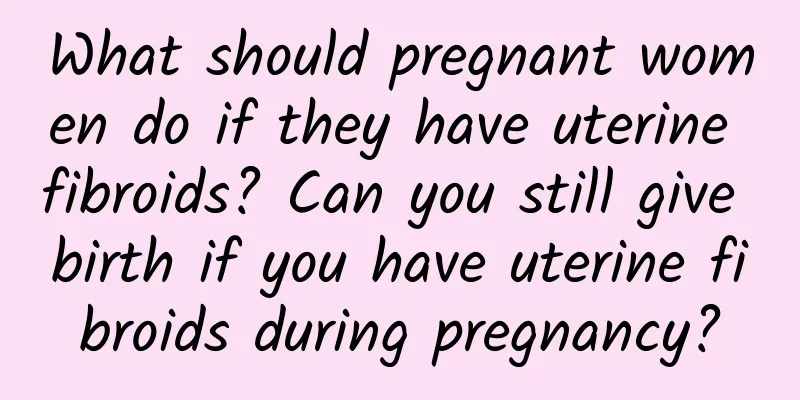Probiotics are anti-allergic and can also help reduce weight in the "intestines". Research: Bifidobacterium breve promotes metabolism and helps teenagers control obesity

|
In addition to improper calorie intake, obesity may also be caused by an imbalance of intestinal bacteria, which is known as the "second brain" of humans! Recently, new research has found that in addition to the well-known use of probiotics to improve allergy symptoms, moderate supplementation of Bifidobacterium breve in probiotics can actually help with weight loss! Obesity can lead to many chronic diseases. Therefore, how to rely on daily life and probiotics to assist intestinal health and achieve moderate weight control is an issue worthy of attention. Common probiotics include lactobacillus, bifidobacterium, Saccharomyces boulardii, lactic acid Enterococcus and Bacillus subtilis. Among them, Bifidobacterium (Bifidobacterium) includes Bifidobacterium bifidum (B bacteria, Bifidobacterium bifidum), Bifidobacterium longum (Dragonroot), Bifidobacterium breve, Bifidobacterium lactis (Rett B bacteria), Bifidobacterium infantis, Bifidobacterium adultum, etc. Study: Dietary control and the addition of Bifidobacterium breve can help with weight loss Why do intestinal bacteria in probiotics have an impact on obesity? Previous studies have shown that probiotics can assist in weight loss, but it is still unclear which bacteria in probiotics play a key role. According to a report in Science Daily, Dr. Flavia Prodam and her team from the University of Naples "L'Orientale" in Italy selected two beneficial bacteria, Bifidobacterium breve BR03 and B632, for research. They had children and adolescents who were on calorie control take these two types of Bifidobacterium breve and found that they helped with weight loss. The study was conducted by dividing 100 obese children or adolescents between the ages of 6 and 18 into two groups. The experiment was conducted in a double-blind manner. In addition to dietary control for all subjects, the experimental group was randomly given Bifidobacterium breve BR03 and Bifidobacterium breve B632; the control group was given a placebo. The experiment lasted for 8 weeks, and the numerical changes of the subjects were observed after 4 weeks after the end of the experiment. Study: Bifidobacterium breve helps control obesity in adolescents. An Italian study found that after analyzing the results of stool sampling, Bifidobacterium breve BR03 and Bifidobacterium breve B632 both help improve the composition of intestinal microorganisms and increase metabolism, thereby having the effect of controlling obesity in children and adolescents. Finally, it was found that the subjects' waist circumference, BMI index, and insulin resistance all showed a downward trend. In addition, after analyzing the stool samples of the subjects, it was found that the number of bad bacteria in the intestines, such as Escherichia coli, was reduced in the group that took Bifidobacterium breve BR03 and B632 together. After analyzing the results of stool sampling, it was found that Bifidobacterium breve BR03 and Bifidobacterium breve B632 both help improve the composition of intestinal microorganisms and increase metabolism, thereby having the effect of controlling obesity in children and adolescents. In the future, the research team will develop more suitable weight loss strategies for obese patients who benefit from these two strains of Bifidobacterium breve. Regular intake of prebiotic foods can also help maintain the balance of intestinal bacteria Although experiments have shown that the two types of Bifidobacterium breve can control obesity in adolescents, they should be taken in moderation and eating too much is not good. The key to controlling weight is still to maintain a diverse and balanced intestinal flora. In particular, by supplementing with "prebiotics", foods that probiotics like, an environment that probiotics like can be created in the intestines, thereby promoting their reproduction in the intestines, which helps to restore the balance of unbalanced flora. As for where to supplement prebiotics? Prebiotics are usually substances that cannot be digested and absorbed by humans, such as oligosaccharides, inulin, dietary fiber, etc. In daily life, prebiotic foods rich in dietary fiber include: whole grains, mushrooms, seaweed, onions, asparagus, broccoli, sweet potato leaves, burdock, carrots, etc., which are all good choices; fruits can be chosen from bananas, apples, oranges and pears. Moderate intake of these beneficial foods can help maintain a diverse bacterial population in the intestines and make obesity less likely. |
Recommend
How to prevent cervical erosion from becoming cancerous
How to prevent cervical erosion and cancer in dai...
Losing weight is more effective when you choose the right time! Doctor Chen Huangguang: Master the 5 golden time points to easily lose weight and avoid gaining weight again
Many office workers want to lose weight, but they...
How to treat irregular menstruation at 45 years old? 9 foods to eat for irregular menstruation at 45 years old
Menstruation is a normal physiological cycle for ...
What are the treatments for pelvic inflammatory disease?
Pelvic inflammatory disease is one of the common ...
Eating a lot of oil and salt can cause constipation. Drink 3 teas to improve your intestines.
For many busy office workers, three meals a day a...
I had my nose done two weeks after an abortion, so it should be okay.
It is usually not a big problem to have a nose jo...
How to arrange diet after miscarriage?
How should the diet after miscarriage be arranged...
Is bacterial vaginosis contagious?
Is bacterial vaginosis contagious? The answer is ...
What are the 4 manifestations of uterine fibroids?
What are the 4 symptoms of uterine fibroids? Uter...
Is it easy to get pregnant with cervicitis and endometritis?
Both cervicitis and endometritis may affect pregn...
Can female cervical erosion be cured? Here are two methods to treat cervical erosion
Cervical erosion is a type of chronic cervicitis....
What to do if threatened miscarriage is serious
Many people are concerned about what to do if the...
Does a 45-year-old with adenomyosis need surgery?
Whether a 45-year-old woman with adenomyosis need...
Let's take a detailed look at the symptoms of cervicitis patients
Cervicitis can be divided into chronic and acute ...
Cervical hypertrophy and cystic pregnancy
Cervical hypertrophy with cysts does not necessar...









